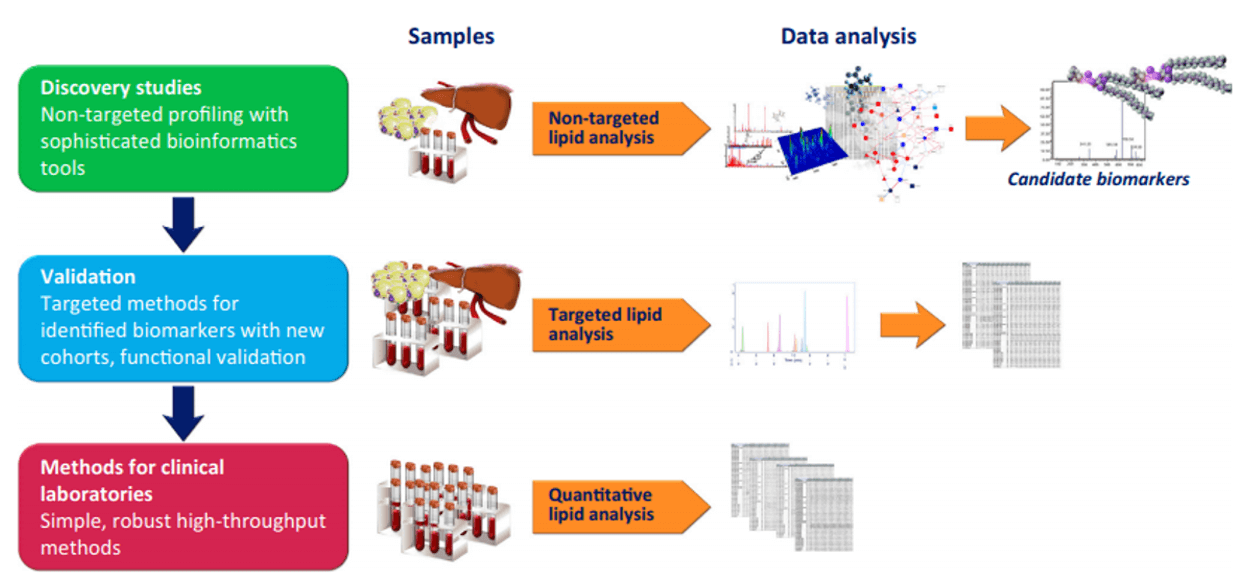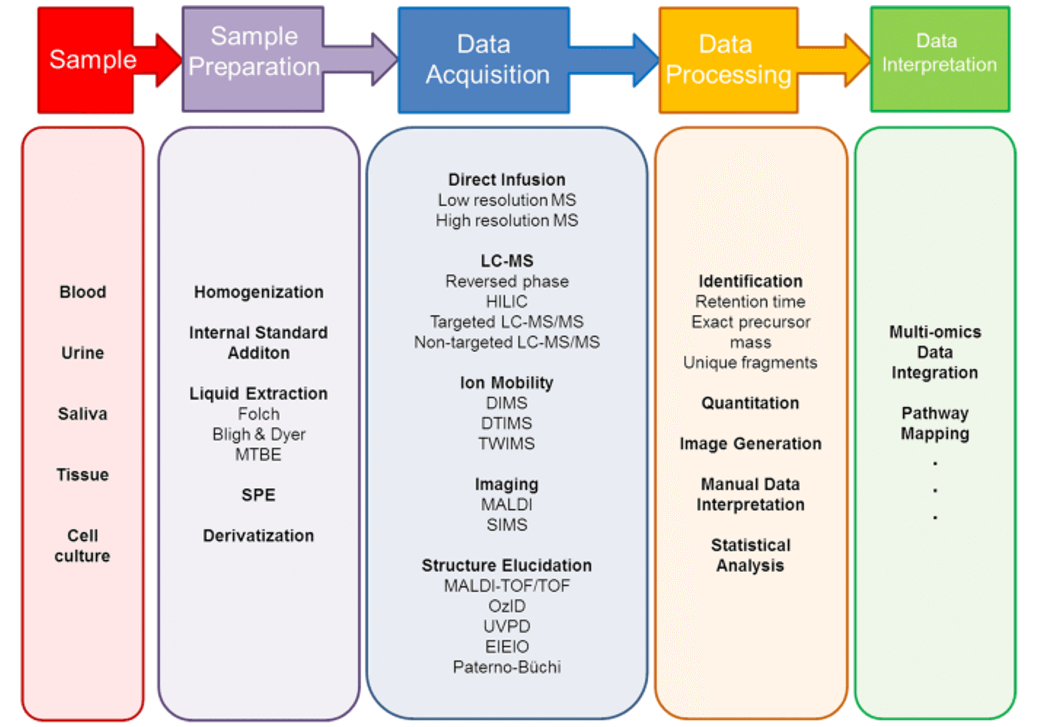Lipidomics Bioinformation Analysis
According to different research purposes, lipidomics can be further divided into untargeted lipidomics and targeted lipidomics. Untargeted lipidomics uses LC-MS and GC-MS technologies to unbiasedly detect the dynamic changes of all lipid molecules before and after stimulation or disturbance in cells, tissues, organs or organisms. Through bioinformatics analysis to screen differential lipid molecules and analyze their pathways, reveal the physiological mechanism of their changes. Targeted lipidomics is the research and analysis of a specific class of lipids. The two are often used in combination for the discovery and quantification of differential lipid molecules. Lipidomics plays an important role in food identification, disease research, animal model verification, biomarker discovery, disease diagnosis, drug development, drug screening, drug evaluation, clinical research, plant metabolism research, and microbial metabolism research.

Untargeted Lipidomics Data Analysis
1. Data acquisition
Lipidomics often requires the use of multiple analytical techniques to meet different experimental needs. Common analytical techniques include liquid chromatography-mass spectrometry (LC-MS), gas chromatography-mass spectrometry (GC-MS), capillary electrophoresis - mass spectrometry (CD-MS), HILIC-MS, etc. High resolution mass spectrometry technologies mainly include TOF-MS, FTICR-MS, Orbitrap-MS, Sector-MS, etc. The mass spectrum data obtained by the above technique is used for subsequent analysis.
2. Data analysis
- Data preprocessing: use tools such as XCMS, MZmine and MarkerView for raw data processing.
- Identify differential lipid molecules: Commonly used analysis methods include principal component analysis (PCA), partial least squares discriminant analysis (PLS-DA), orthogonal partial least squares discriminant analysis (OPLS-DA), etc. Data analysis results also need to be screened for differential lipid molecules through t-test and variable importance in projection (VIP) values. It is generally believed that variables satisfying both P<0.05 and VIP>1.0 are differential lipid molecules.
- Metabolic pathway analysis: Common metabolic pathway databases include LipidMaps, LipidBank, HMDB, KEGG, Reactome, BioCyc, MetaCyc and other databases, which can be used to analyze metabolic pathways and interaction networks.
- Multi-omics analysis: Available databases and tools include IMPaLA website, iPEAP software, MetaboAnalyst website, SAMNetWeb website, pwOMICS, MetaMapR, MetScape, Grinn, WGCNA, MixOmic, DiffCorr, qpgraph, huge, etc.
Targeted Lipidomics Data Analysis
Targeted lipidomics is more specific than untargeted lipidomics and aims to analyze several or more lipid molecules associated with biological events.
1. Data acquisition
In targeted methods, natural and isotope-labeled standards facilitate the identification and quantification of lipid molecules and reduce false positives. Quantitative metabolomics can be used to establish baseline levels of lipids in tissues or organisms, for comparison between laboratories, or to define normal and "disturbed" states of metabolism. The use of isotope-labeled internal standards can also help explain the matrix-induced ionization effects that affect the accuracy of the analysis, thereby improving the sensitivity of biological response testing.
2. Data analysis
Since targeted metabolomics focuses on a limited variety of metabolites, data analysis is simpler and more straightforward than untargeted metabolomics. The methods and databases used are similar to those of untargeted lipidology, including databases such as LipidMaps and LipidBank.
Creative Proteomics provides targeted lipidomics and untargeted lipidomics services. Our services include basic data analysis services. If you already have lipidome data, we can also provide you with specialized bioinformatics analysis services.
If you are interested in our lipid bioinformatics analysis service and want to find out more, feel free to contact us!
* Our services can only be used for research purposes and Not for clinical use.
Services:
Resource:
Platform:



